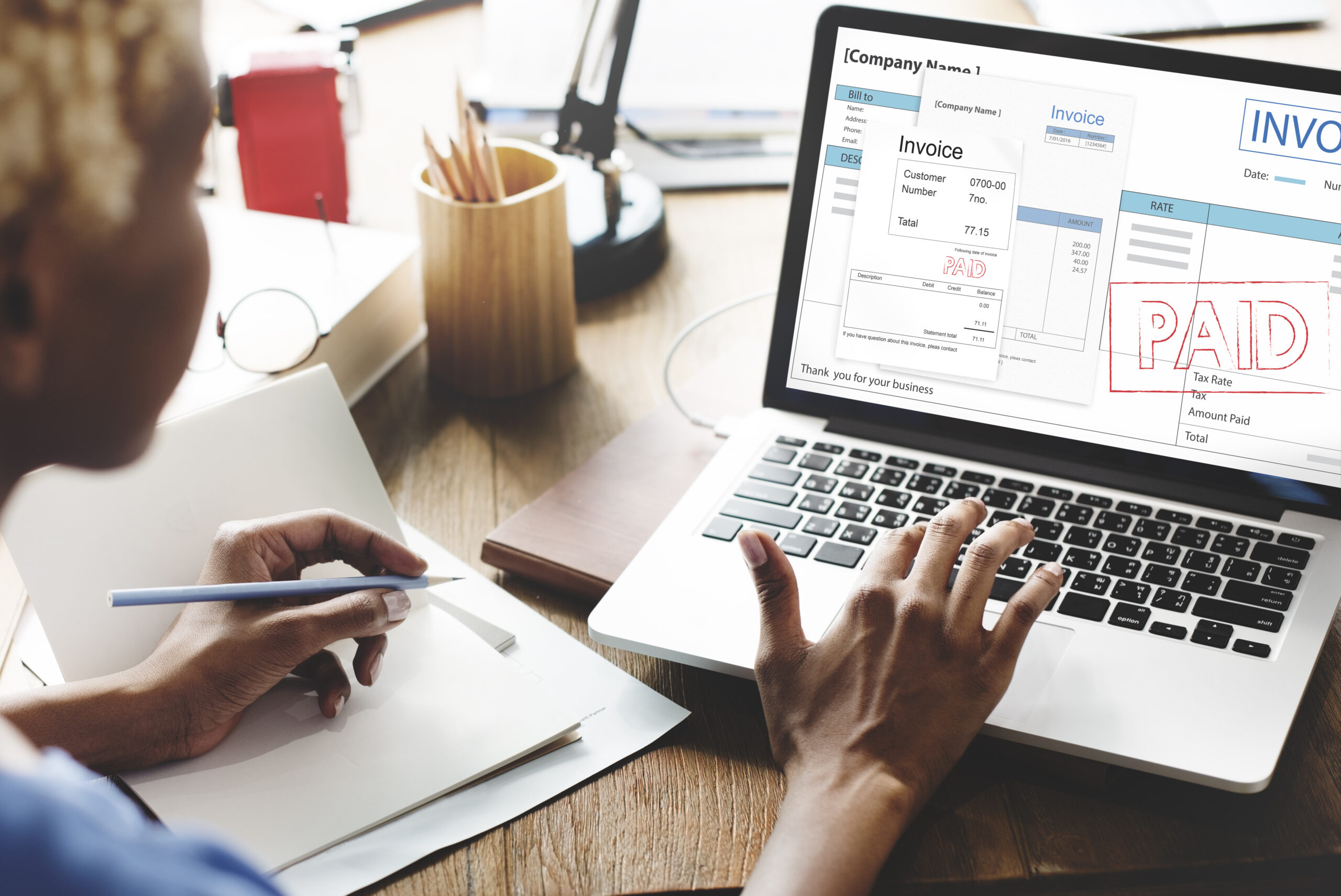How Much Should I Pay for an Accountant in 2023?

As a business owner, understanding the costs associated with hiring an accountant is crucial for managing your finances effectively. After all, accountants play a vital role in helping businesses maintain accurate financial records and navigate complex financial situations. So, “How much should I pay for an accountant?” is a common question that arises. In this blog post, we’ll explore the factors that influence accountant costs, discuss various cost-saving strategies, and guide you through choosing the right accountant for your business in 2023. By the end of this post, you’ll have a clearer understanding of what to expect when it comes to accounting fees and how to make an informed decision that suits your business needs.
Short Summary
- Understanding the factors that influence accountant costs is key to making informed decisions when hiring.
- Compare quotes and services from multiple firms to get the best value for your business, considering fees and quality of service.
- Investing in professional accounting can help save time, improve financial management & provide access to expert advice.
Understanding Accountant Costs
Accountant costs can vary greatly depending on several factors, including the average accountant cost. For instance, the size and type of your business, the specific accounting services you require, and your geographic location all play a role in determining the cost of an accountant. It’s important to be aware of these factors, as they can help you make informed decisions when hiring an accountant and ensure you’re only paying for the services your business truly needs.
To gain a better understanding of how each of these factors influences accounting costs, let’s take a closer look at each one in the following subsections.

Business Size and Type
The size and type of your business play a significant role in determining accounting costs. For example, a small business, such as a sole trader or limited company, may have lower accounting fees compared to a larger business with more complex financial needs. Accounting firms often consider the complexity of a business’s financial situation when determining fees, as well as the time and effort required to manage company accounts and file tax returns with Companies House.
Typically, a small business can expect to pay anywhere from £100 to £300 per month for a basic accounting package that includes bookkeeping, tax returns, and payroll services. However, as your business grows and its financial needs become more complex, you may need to consider more comprehensive accounting packages or seek the services of an accountant with expertise in your specific industry.
Types of Accounting Services
Accounting services can be divided into several categories, each with its own costs and complexities. Examples of services that are available include:
- Annual accounts
- Bookkeeping
- Tax returns
- Payroll returns
- VAT returns
- Advice on tax legislation
- Ongoing advice
The costs associated with these services can vary greatly, with one-off fees for services such as business accounts and VAT returns increasing as your company’s turnover grows.
For example, a business with a turnover of £20,000 to £30,000 can expect to pay around £300 for a one-off business account service, while a business with a turnover of £250,000 to £300,000 may pay up to £1600 for the same service. Similarly, one-time self-assessment tax return fees can range from £150 to over £1000, depending on the complexity of the work.
It’s important to consider the specific services your business needs when comparing quotes from different accountancy firms, as this can help you secure the best value for your business.
Geographic Location
The geographic location of your business can also have an impact on accountant fees. Businesses located in metropolitan areas, such as London, can expect to pay higher fees compared to those in rural areas. This is due to factors such as higher living costs, increased demand for accounting services, and the presence of larger firms with more specialized services.
When comparing accounting firms, it’s essential to consider not only the fees they charge, but also the quality of their services and whether you feel comfortable working with them. In some cases, it may be worth paying a premium for an accountant with a proven track record and expertise in your specific industry or niche, rather than simply opting for the lowest-cost provider.
Choosing the Right Accountant for Your Business
Selecting the right accountant for your business is a critical decision that can have a lasting impact on your financial success. To ensure you make the best choice, it’s crucial to:
- Assess your business needs
- Compare quotes and services from multiple accountants
- Ensure the accountant you choose has the necessary qualifications and competence
Let’s dive deeper into each of these steps to help guide you in choosing the right accountant for your business.

Assessing Your Business Needs
Before you start searching for an accountant, it’s crucial to have a clear understanding of your business needs. This includes evaluating your business goals, objectives, and financial performance, as well as identifying your highest priority needs. By assessing your business needs, you can determine the type and level of accounting services required, ensuring you only pay for what you need.
As your business grows and evolves, your accounting needs may change as well. Regularly reassessing your business needs can help you stay on top of any changes and ensure you’re always working with the right accountant for your current situation.
Comparing Quotes and Services
Once you have a clear understanding of your business needs, it’s time to compare quotes and services from multiple accountants. This can help you find the best value and fit for your business, as well as ensure you’re getting the most comprehensive and appropriate services for your needs.
When comparing quotes, it’s essential to consider not only the fees, but also the quality of services provided and whether you feel comfortable working with the accountant. Keep in mind that the lowest-cost provider may not always be the best option, and it’s important to strike a balance between cost and quality to ensure your business’s financial success.
Ensuring Qualifications and Competence
Ensuring your accountant has the necessary qualifications and competence is crucial for maintaining accurate financial records and receiving expert advice. It’s important to verify the accountant’s professional qualifications, such as being a member of a recognized accountancy body, and their experience in working with businesses similar to yours.
Additionally, consider checking references and reviews from current and former clients to gain further insight into the accountant’s competence and professionalism. By ensuring your accountant has the required qualifications and experience, you can trust them to handle your financial matters with confidence and expertise.
Cost-saving Strategies for Accounting Services
While investing in professional accounting services is crucial for any business, it’s important to be aware of cost-saving strategies that can help you manage your accounting costs effectively. Some of these strategies include DIY accounting, outsourcing accounting services, and negotiating fees and packages with your accountant.
Let’s explore each of these cost-saving strategies in more detail to help you determine the best approach to save money for your business.

DIY Accounting and Software
DIY accounting and software can be a cost-effective solution for start-ups and small businesses with limited budgets. By taking on some accounting tasks yourself, such as bookkeeping and basic tax returns, you can save on accounting costs and invest more in other areas of your business.
However, as your self-employed business grows and its financial needs become more complex, you may need to consider outsourcing some or all of your accounting tasks to a professional.
When using DIY accounting software, it’s important to ensure it’s compatible with your business needs and accounting systems. Many accounting software options are available, ranging from basic solutions to more advanced programs that can integrate with your existing systems and processes.
Outsourcing vs. In-house Accounting
Outsourcing accounting services can often be more cost-effective than hiring in-house staff, especially for small businesses with limited budgets. By outsourcing, you only pay for the services you need when you need them, rather than taking on the overhead of hiring and maintaining a full-time staff member. Additionally, outsourcing can provide access to a wider range of expertise and services than may be available with an in-house accountant.
However, it’s important to weigh the potential cost savings against the benefits of having an in-house accountant who is familiar with your business and can provide personalized advice and support. Ultimately, the decision between outsourcing and in-house accounting will depend on your specific business needs and priorities.
Negotiating Fees and Packages
Negotiating fees and packages with your accountant can help you secure the best value for your business. Many accountants offer fixed fees or bespoke packages tailored to your specific needs, allowing you to pay for only the services you require. By discussing your business needs and budget with your accountant, you can work together to develop a fee structure that meets your requirements and offers the best value for your business.
In addition to negotiating fees, consider discussing additional services or support your accountant may be able to provide, such as tax planning or business planning advice. These added services can help you maximize your investment in professional accounting services and ensure your business operates as efficiently and effectively as possible.
The Benefits of Investing in Professional Accounting Services
Investing in professional accounting services offers numerous benefits for your business, such as improved financial management, time savings, and access to expert advice. By partnering with a skilled accountant, you can ensure your business’s financial records are accurate and compliant, helping you avoid costly mistakes and penalties.
Let’s delve further into the specific benefits of investing in professional accounting services.

Improved Financial Management
Accurate record-keeping and financial planning are crucial for improved financial management. By investing in professional accounting services, you can ensure your business records are up-to-date and accurate, allowing you to make informed decisions and spot potential risks before they become problems.
Additionally, expert advice from a professional accountant can help you navigate complex financial situations, such as tax planning and cash flow management. This expert guidance can help your business maximize its financial performance and avoid costly mistakes.
Time Savings
Outsourcing accounting tasks to a professional can save you valuable time, allowing you to focus on other aspects of your business, such as growth and strategy. By entrusting your financial management to an expert, you can spend less time on administrative tasks and more on the activities that drive your business forward.
Furthermore, professional accountants are often more efficient at completing accounting tasks than business owners, as they have the experience and expertise to handle complex financial situations quickly and effectively. This can result in even greater time savings and improved overall efficiency for your business.
Access to Expert Advice
Access to expert advice from a professional accountant is invaluable for businesses navigating complex financial situations and maximizing tax savings. A skilled accountant can provide guidance on a wide range of financial issues, including:
- Tax planning
- Cash flow management
- Budgeting and forecasting
- Financial analysis and reporting
- Business valuation
- Risk management
- Compliance with accounting standards and regulations
By working with a knowledgeable accountant, your business can make the most of its financial resources and ensure long-term success.
By investing in professional accounting services, you can ensure your business has access to the expert advice and support it needs to succeed in today’s competitive marketplace.
Accountant Costs: What to Expect
Accountant costs can vary based on several factors, including hourly rates, monthly packages, and one-off fees. By understanding these different fee structures, you can make an informed decision about which type of accounting service is best suited to your business needs and budget.
Let’s explore each of these cost structures in more detail to help you determine what to expect when it comes to accountant costs.

Hourly Rates
Hourly rates for basic accounting services typically range from £25 to £50 per hour, depending on the complexity of the work and the experience of the accountant. If you’re wondering how much does an accountant charge for specialist services, such as tax planning or business planning advice, the costs can be higher, with hourly rates ranging from £125 to £150 per hour.
When considering hourly rates, it’s important to weigh the potential cost savings against the benefits of working with a more experienced accountant who may be able to provide more valuable advice and support.
Monthly Packages
Monthly packages for general accounting services can range from £60 to £500 per month, depending on the size of your business and the services required. These packages can include a range of services, such as:
- Bookkeeping
- Tax returns
- Payroll
- VAT returns
These packages can be tailored to your specific business needs.
By opting for a monthly package, you can ensure your business receives ongoing support from a professional accountant, helping you maintain accurate financial records and stay compliant with tax regulations.
One-off Fees
One-off fees for services such as self-assessment tax returns can range from £150 to over £1000, depending on the complexity of the work. These fees are typically charged for individual services and are separate from any ongoing accounting support your business may require.
When considering one-off fees, it’s important to evaluate the value of the service provided and whether it’s worth the cost, particularly for more complex tasks that may require specialist knowledge or expertise.
Summary
Understanding and managing accountant costs is a critical aspect of running a successful business. By considering factors such as business size, type, and location, you can make informed decisions about which accounting services are best suited to your needs and budget. Furthermore, employing cost-saving strategies such as DIY accounting, outsourcing, and negotiating fees can help you manage your accounting expenses effectively.
Ultimately, investing in professional accounting services can provide your business with numerous benefits, including improved financial management, time savings, and access to expert advice. By weighing these advantages against the costs, you can make the best decision for your business and ensure its financial success.
Frequently Asked Questions
How much should you pay for accountant UK?
Accounting services for businesses range from around £25 to £400 per month, depending on the size and scope of work required.
Do I need a personal accountant UK?
For complex tax affairs, an accountant can be invaluable in helping you calculate and reduce your personal tax bill. It is worth investing in one if this applies to you.
How much should I expect to pay for an accountant in 2023?
In 2023, you can expect to pay between £50-£250 an hour for an accountant, depending on the services required.
How does the size and type of my business affect accounting costs?
The size and type of your business can have a major impact on accounting costs, as larger businesses with more complex financial situations will incur higher fees.
Accounting fees can vary greatly depending on the complexity of the business. For example, a small business with a simple financial situation may only need to pay a few hundred dollars a year for basic accounting services. On the other hand, it is a good thing.
What are some cost-saving strategies for accounting services?
DIY accounting and software, outsourcing accounting services, and negotiating fees and packages with your accountant are all effective cost-saving strategies for accounting services.






